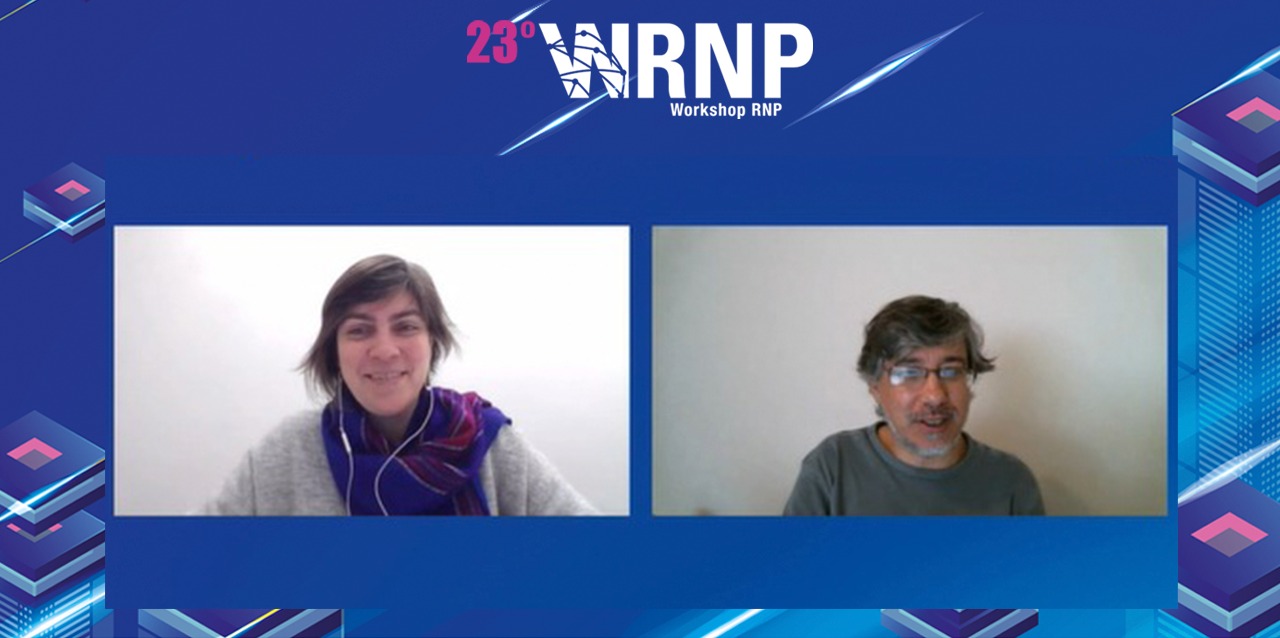Infrastructure is one of the main challenges of telehealth in Brazil, says Luciana Portilho (NIC.Br)
The COVID-19 pandemic has accelerated the digitization of different spheres of life. And in health it was no different. Data from the ICT COVID-19 Panel, from the Regional Center for Studies for the Development of the Information Society (Cetic), show that, in 2019, 82% of Basic Health Units had access to the Internet and, in 2020, it was 92%. Even so, the percentage of establishments that adopt telehealth in Brazil does not even reach 30%, and there are many challenges to ensure the wide availability and adoption of the service in the country, pointed out Luciana Portilho.
In the "Telemedicine in Brazil: the digital transformation in health" session, this Monday (23), during the 23rd WRNP, the doctor in economic development from Unicamp and coordinator of the ICT Health research presented an overview of the progress of the sector in the country, both from the perspective of the supply of establishments and the demand of patients. The mediation was by Paulo Lopes, PhD in Sciences at Unifesp and a health specialist at RNP.
With the regulation of teleconsultation, instituted in Brazil in 2020 with the arrival of the pandemic, the service was adopted by 18% of national health establishments. Despite the growth, there are bottlenecks that make it difficult to computerize the area, especially in terms of access to the infrastructure necessary for its operation.
“We see that there are extracts that have a higher percentage of establishments with higher (Internet) speeds. Mainly in private establishments, in the Southeast region. Most public establishments still have access to lower speeds. This is a point of attention for improvements in the available infrastructure that can impact the use of the telehealth service in general”, commented Luciana.
Another sensitive point to the advancement of telemedicine is the lack of reliable devices for carrying out online consultations, highlighted the researcher. “Among users who carried out online consultations, 59% did so through messaging apps. (...) 58% of people who did not undergo teleconsultation did not do so because they are concerned about the security of their personal data. These results may indicate a lack of adequate means for online consultations, which are based on legal frameworks and which guarantee the security and privacy of patient data”.
Luciana highlighted the fundamental role that RNP has played in solving these bottlenecks, both with the availability of resources and instruments, and with the emergence of the technical committee on digital health launched in 2021. “RNP has added many different ideas about the future of this area, putting it in a more formalized way”, she stressed.
Lopes pointed out that an article recently published in Folha de S.Paulo by researchers from the Sou Ciência group pointed out that 59% of the federal universities declared to have acted strongly in the advancement of telehealth, with the establishment of new centers and systems in partnerships with technology laboratories, city halls, state governments and with the Unified Health System (SUS).
Another highlight of this Monday's (23rd) program of the 23rd WRNP was the session of R&D Advanced Services Program Working Groups, moderated by RNP R&D coordinators Rafael Valle, Clayton Reis and Fausto Vetter. Opening the section, Valle highlighted that a good part of RNP's history of innovation is linked to the WG, launched in 2002. “A differential of our program has always been to have a very close follow-up, with meetings and reports, with the objective of having a more satisfactory result for RNP and our entire community”, he said.
The section included lectures, presentation of projects by Cesar Augusto Cavalheiro Marcondes (ITA), Cristian Cechinel (UFSC), Rubens Martins Pereira (Engenharia do Cuidado Startup), Eduardo Lázaro Martins Naves (UFU), Michele Nogueira Lima (UFMG), Fabíola Gonçalves Pereira Greve (UFBA), Rafael Ferreira Leite de Mello (UFRPE) and Dianne Scherly Varela de Medeiros (UFF).
Representing the Engenharia do Cuidado WG, a platform that wants to facilitate communication and the sharing of information safely between health teams and patients, Rubens Martins Pereira, from the Engenharia do Cuidado startup, congratulated RNP for the way it conducts the work groups. “This way of starting innovation projects is the dream of everyone who works on it”, said Pereira, who praised the interactivity of the MVP validation process (minimum viable product).
